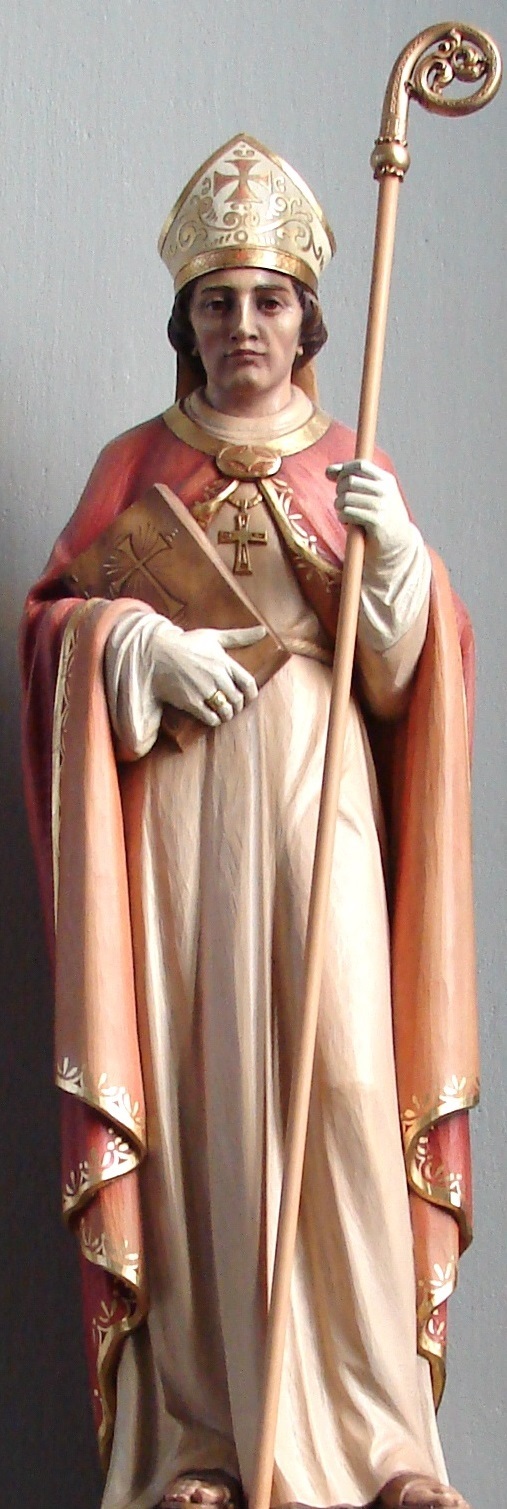Quick Facts
- Born February 15, 1133 in Fljótshlið, Iceland
- Educated at Oddi, 1142-1148
- Ordained Deacon, 1148
- Ordained Priest, 1151
- Studied in France and England, 1153-1159
- Returned to Iceland (Pastor of Kirkjubær at Siða), 1162-1167
- Canon Regular of St. Augustine and Abbot of Þykkvibær monastery, 1168-1174
- Elected Sixth Bishop of Skálholt, 1174
- Died December 23, 1193 in Skálholt
- Declared "Patron Saint of The Icelandic People" by Alþing (Icelandic National Assembly), 1198
- Formally canonized by St. Pope John Paul II, January 14, 1984
Feast Dates
December 23: Thorlaksmessa holiday in Iceland
July 20: Memorial, Translation of Relics/local canonization, 1198
Patron Saint of Autistic People in the Church
In recent years, Saint Thorlak has gained notice for both having autistic-like traits and for demonstrably interceding for neurodivergent people worldwide. He is considered by many as Patron Saint for Autistic People, Autistic Clergy and Autistic Vocations, with growing testimony and devotion across several continents.
Pastoral Style
Although history rightly acclaims Saint Thorlak as a "reformer of the Church," he was not a fiery preacher or a harsh disciplinarian. He was much more concerned with the spiritual needs in his diocese than the political ramifications of his reforms. He introduced these initiatives only after praying, fasting, and modeling the love through which God desires to draw all people to Himself. Schooled in the writings of Hugh of St. Victor, and far ahead of his time, Thorlak lived and championed the pastoral approach of merciful love.
Was St. Thorlak a Carmelite?
No, St. Thorlak lived before the Carmelites were established as an order. He adopted the Augustinian Rule as a Canon Regular following his time at the Abbey of St. Victor in Paris from 1153-1157. (For reference, the earliest traces of the Carmelite Order go back to 1155 in the Holy Land, and the Carmelite Rule itself was not formally set forth until 1214.) We might say that St. Thorlak’s formation and career ran parallel to the dawn of the Carmelites, and that his spiritual formation in the Victorine tradition included several of the same elements (e.g., contemplation, unitive prayer, and meditation on Divine Love). St. Thorlak’s pastoral and missionary approaches certainly fit well with the Carmelite charism. He was known far and wide for his gift in imparting the faith one-on-one, though he was easily overwhelmed by large groups and had a lifelong speech impairment which made preaching difficult. His quiet demonstrations of holiness left such an impression on people that they carried his teachings and example to others, and the faith spread and took root wherever he went. He often retreated to dine with the marginalized because he felt a kinship with them, drawing great strength from the candor and sincerity of their friendship. St. Thorlak was not inclined to hide or suppress his differences. As a result, he endured much criticism from his family and people of power. He quietly offered to God all the ways he didn’t fit in, entrusting his differences to God to use however He might. Could St. Thorlak have imagined that God might use his offering eight hundred-plus years later, to guide people like him and give them a way to discover their own spiritual mission in the Church?
How did biographers and contemporaries describe St. Thorlak?
- Quiet, soft-spoken
- Gentle toward penitents
- Careful in considering disputes
- Contemplative, reflective, thoughtful
- Extremely knowledgeable in academic areas
- Deeply caring toward the marginalized
- Reluctant to engage in politics
- Well-ordered
- Easily approachable
- Predictable, reliable
Novena in Honor of Saint Thorlak
In 2018, a novena (nine-day devotional prayer) was approved by Bishop David B. Tencer, OFMCap., honoring the life of St. Thorlak.
Each day's devotion highlights a different aspect of St. Thorlak's life and career for a succinct biographical study.

